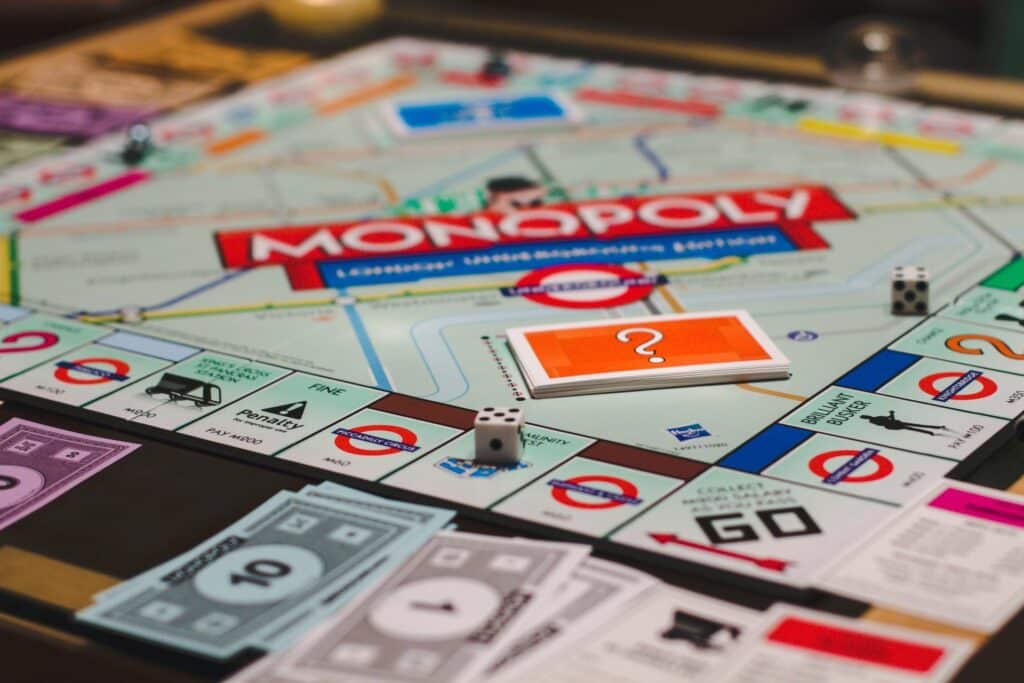In this fast-paced world, kids need to learn skills quickly and memorably to have an advantage over others. Financial skills are essential to learning, and although it seems like children don’t need to learn these skills, that is far from the truth.
Children may not be in situations where they have to use a lot of money independently, but it is advantageous if they learn how to manage money at a younger age.
This way, when they grow up, they can use money wisely. Playing money games is one of the best ways to learn how to handle money. They can have fun while learning about financial management.
If you don’t know where to find such money games for kids, try these 14 interesting games.
Interesting Money Games for Kids
1. Monopoly
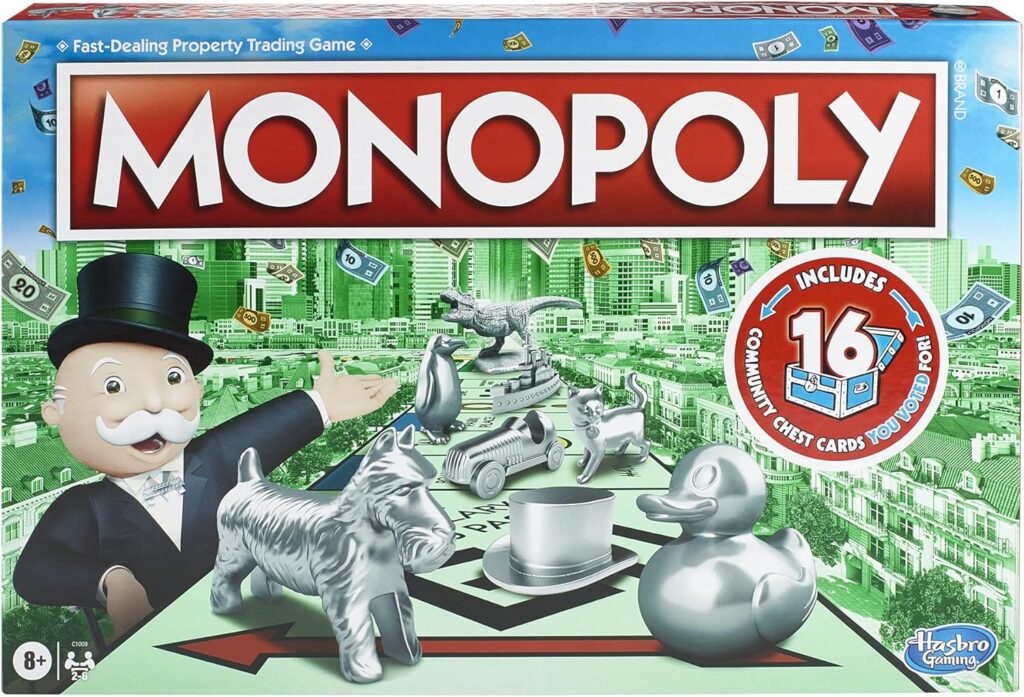
A classic monopoly game to teach your children how to handle large sums of money, how and when to buy real estate, how to pay fines and taxes, and how to decide when to buy or not buy assets like hotels, houses, etc.
Adults and children can play this game, which has several properties in different places that can be bought. The game is made more interesting by having the chance and community chest spaces where you have to pick cards and follow the instructions.
This game has multiple variations to make it more engaging for children.
2. Pay Day
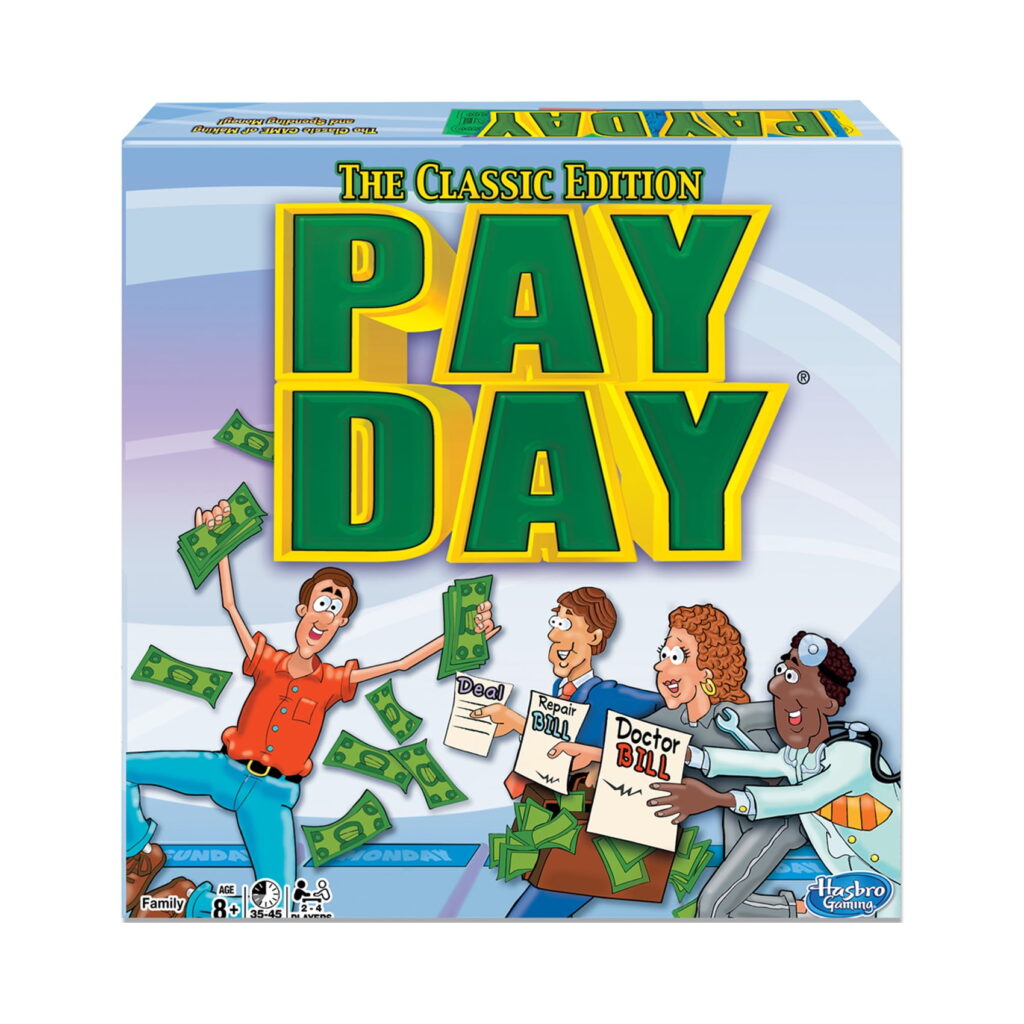
This is a realistic game where you can get paychecks and everything that comes with it, mainly bills to pay, insurance, earning interest on savings, etc. The players must know where and how to spend money wisely and maximize their savings.
There are different versions of this payday game, but the newer versions have some problematic windfalls like spending money on lottery, casinos, etc.
These may not be that appropriate for children to play, but they can still help them strategize to win this game. Children can play this game over the age of 8, and teens and adults can play it.
3. Buy It Right
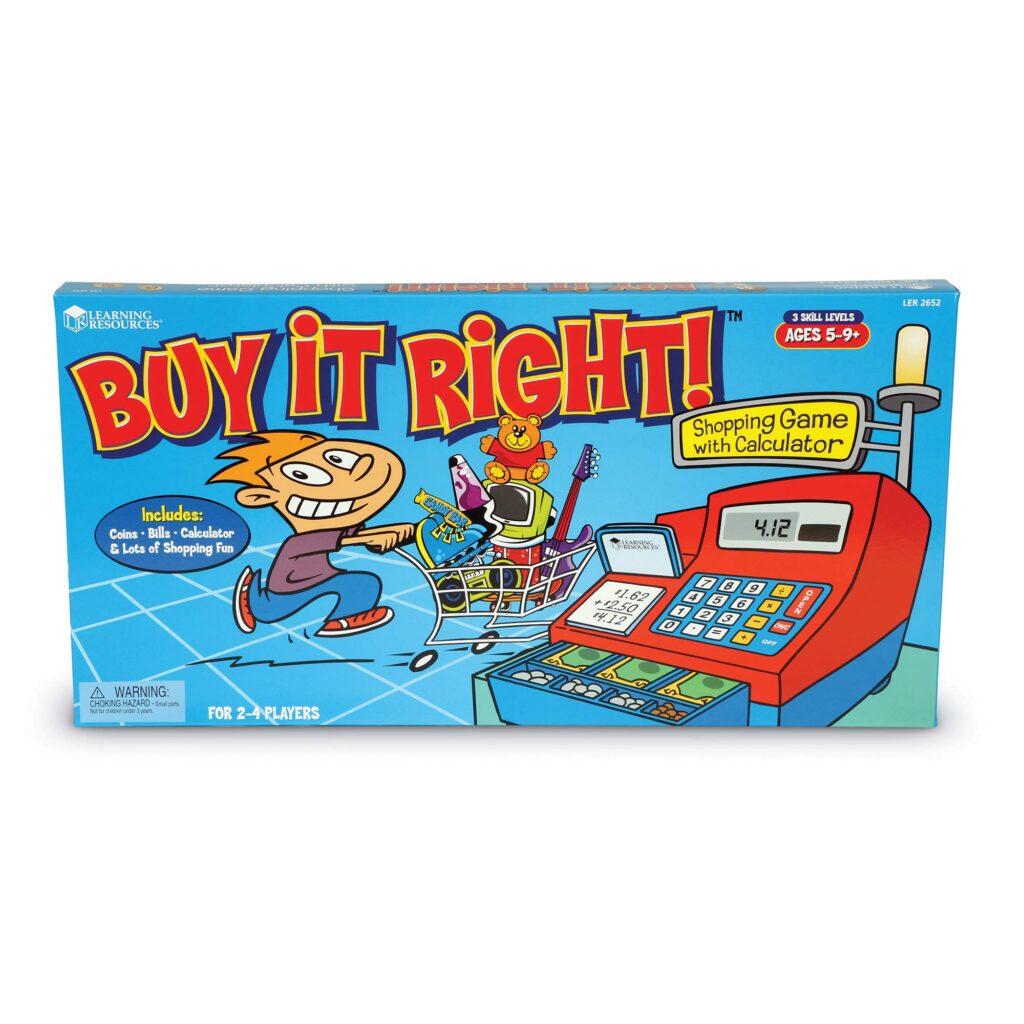
This is one of the best money games for kids to teach them about budgeting and saving. Here, they will be given coins and have to sell and buy items and set the price for them while ensuring they save more money.
2 to 4 individuals can play the board game Buy it Right with a calculator, coins, bills, etc. It can be played by children ages 5 and above.
One can be the cashier who manages money, and one must count the change aloud so others can check and verify.
4. Game of Life
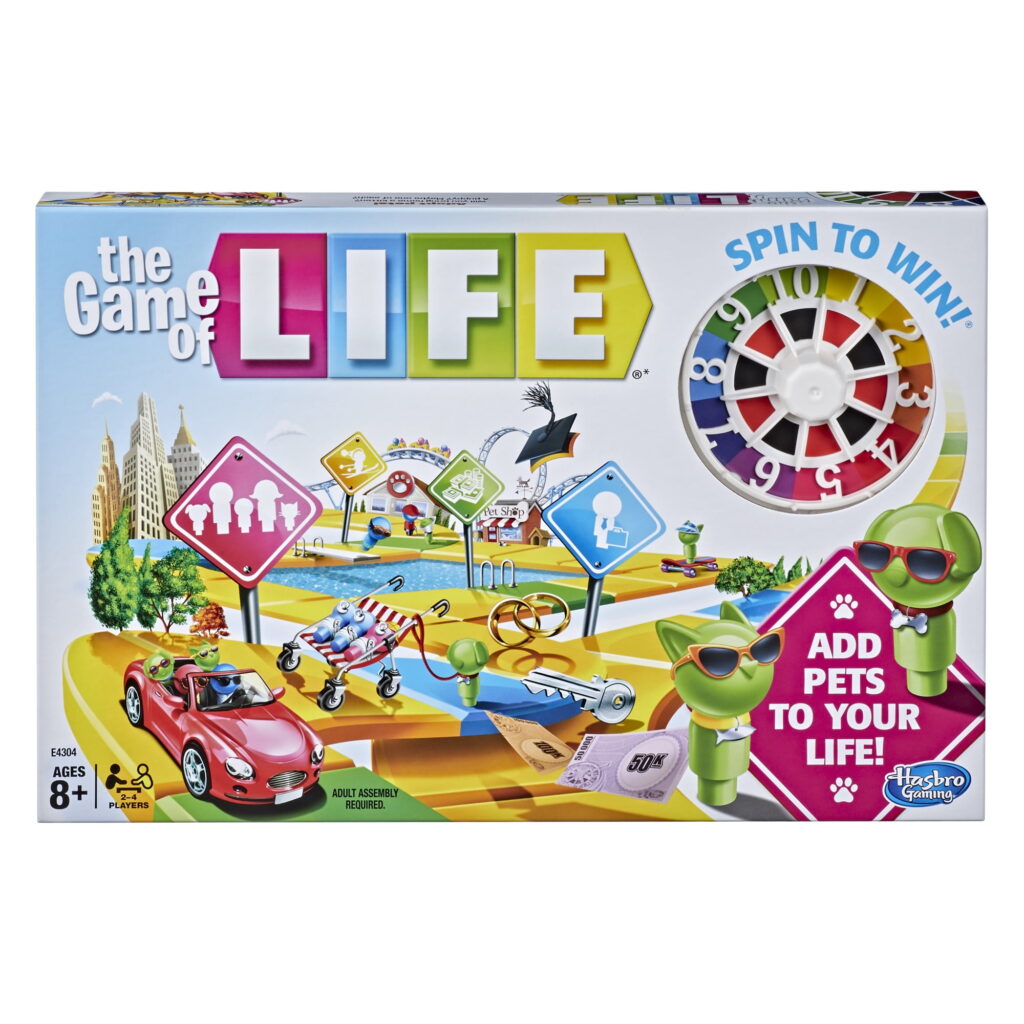
This game aims to teach children how to manage money throughout life. Here, the person travels from early adulthood to retirement.
This game, called the game of life, includes college, marriage, and starting a family, along with other challenges and decisions one has to make in life.
The end goal of this game is to earn as much money as possible, and the player with the biggest amount at the end wins.
It can be played by kids ages 8 and above so that they can understand the nuances of each life stage and the corresponding financial responsibilities that come with it.
5. The Money Bags
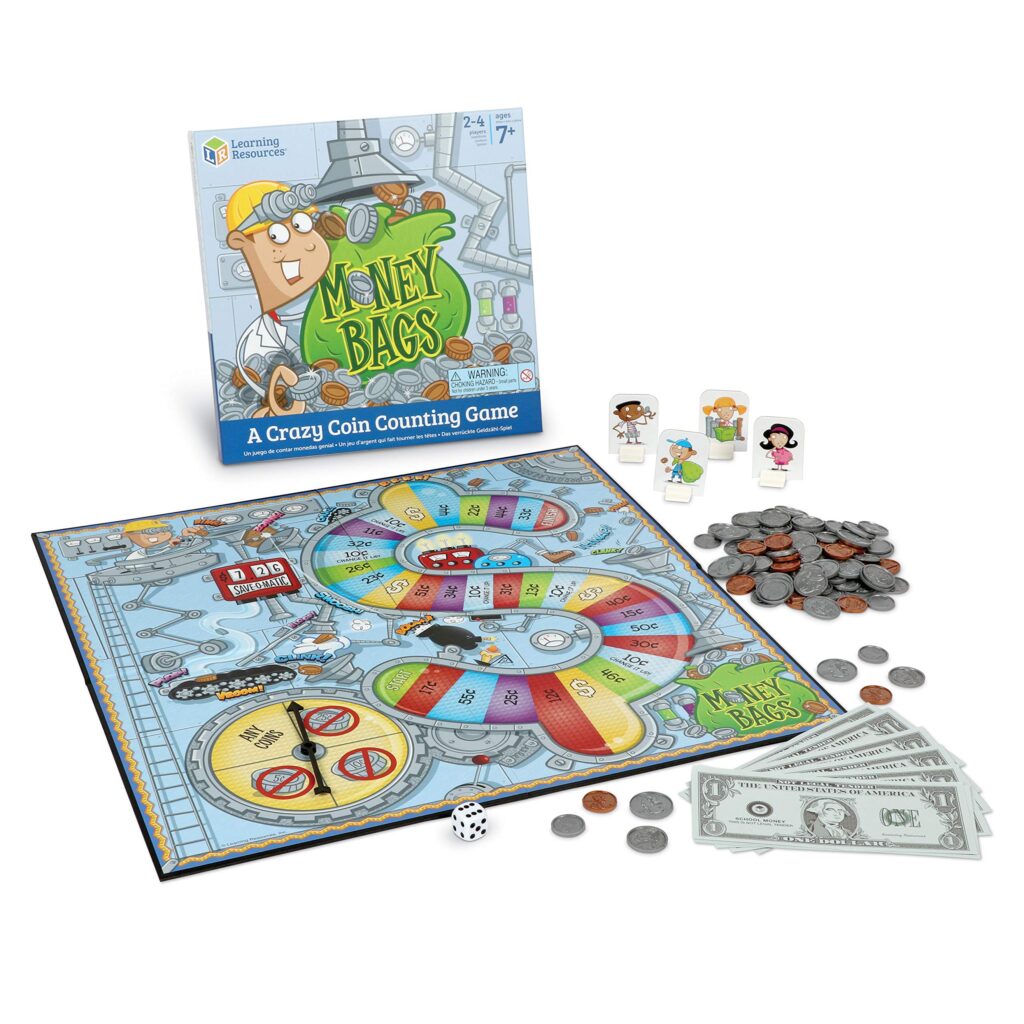
This is also a good game where children can learn how to count and differentiate between coins. They move around the board, collect coins, and give change.
But the interesting part about this money game is that they will not be allowed to use certain coins to give the change. So they have no choice but to strategize and devise alternate ways to give the change.
This is especially suitable for younger children because they can handle coins and paper money, which makes them understand better. The game is over when someone reaches the end.
This can be played by children ages 7 and above. Younger children can also play it, but they need someone to guide and teach them.
6. Cashflow
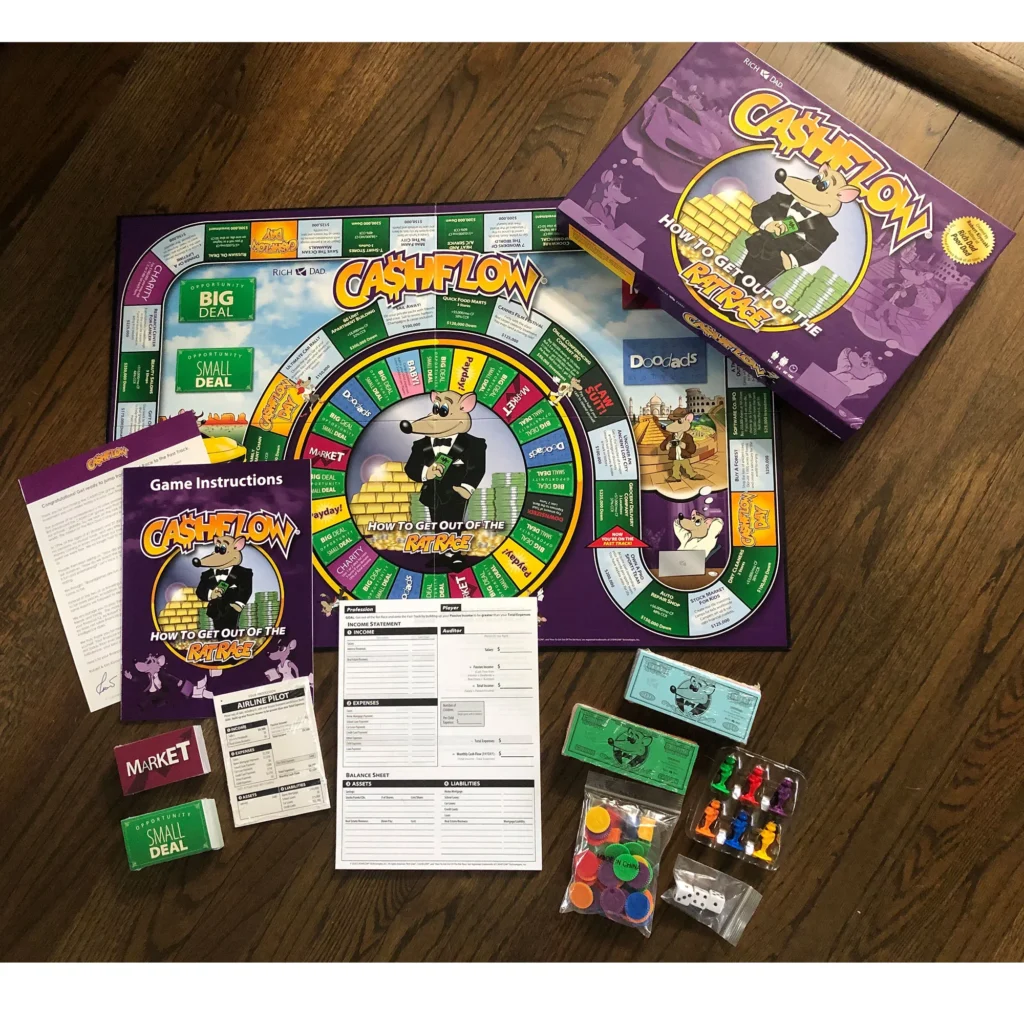
The author of the best-selling book Rich Dad, Poor Dad created this game. Kiyosaki has included all the important lessons from the book in this game. This game teaches some higher-level concepts so kids can play it over the age of 10.
It teaches the basics of investing, budgeting, managing assets, reducing risk, and so on. The players work jobs to earn money and then invest in assets like real estate.
They must strategize ways to make money or earn passive income from assets. They can learn several money management lessons from this game to increase their financial skills.
7. Lakeshore Allowance Game
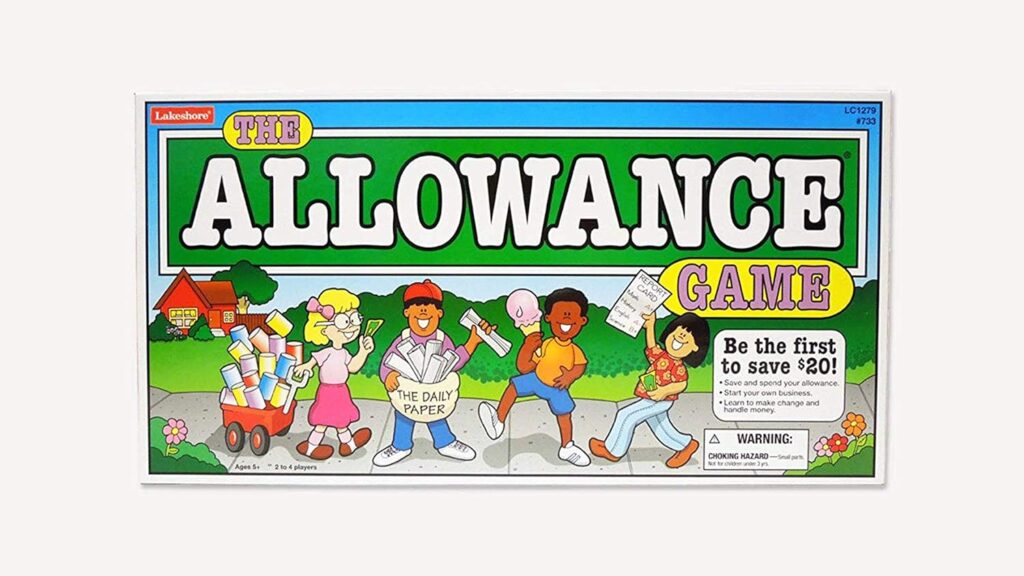
Kids need to make decisions about saving or spending money. They can get practice in handling money, give change, and learn how to spend money.
In the first game, they need to save $100 in savings, while in the second, they have to do this and also collect, make smart decisions, and break the denomination into smaller ones.
This game has a budget sheet, savings chart, and money wheel. This game is ideal for 2-4 players and helps them learn skills that can be applied in real-life situations. It can be played by children aged 5+.
8. Act Your Wage

Dave Ramsey, a finance expert, created this Act Your Wage game. This board game can be played by children ages 10 and above and can be played by 2-5 players. They will be given a specific amount of money and need to move through the board.
They will encounter different events like getting a work bonus, being laid off, or other unexpected events. They need to save and be prepared for these events.
They can choose to spend or save money and learn skills from it. The person with the most money at the end ultimately wins the game.
9. Money Match Me
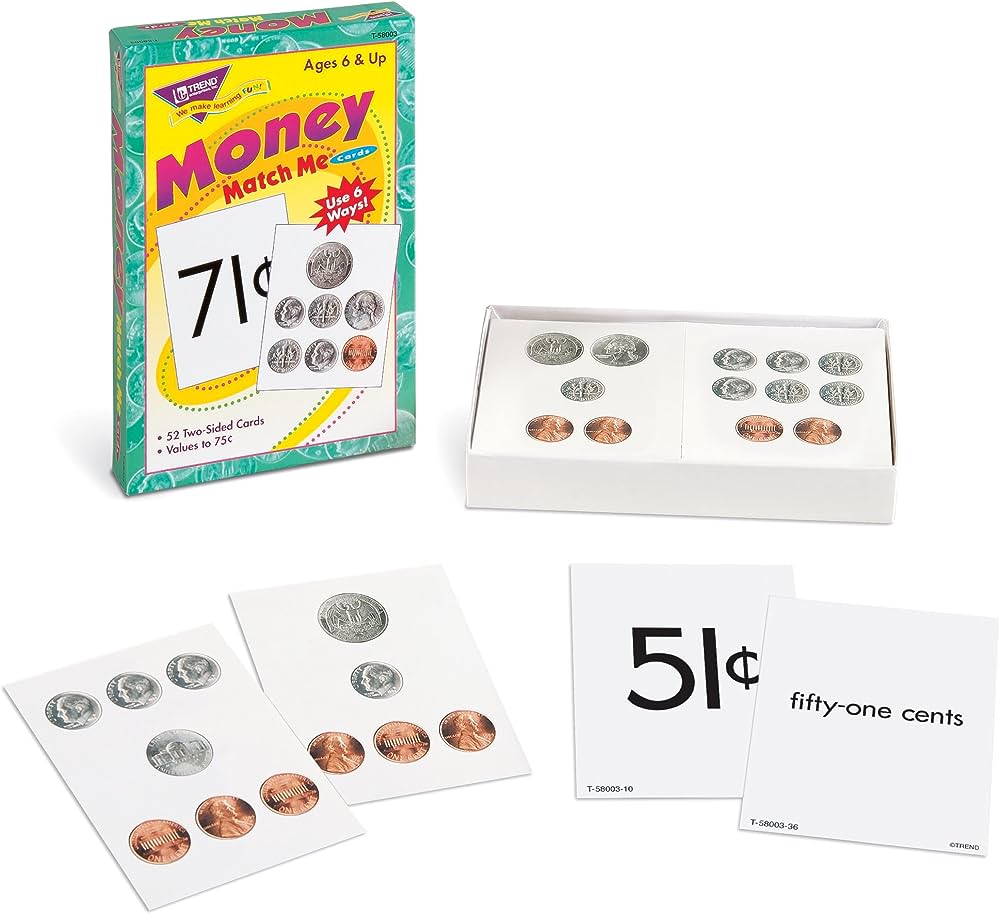
This game can be suitable for younger children to teach them to handle money quickly as they have to add and subtract coins. Here, a card depicts a group of coins, which needs to be matched with a numeric and written description.
For example, a picture that says a specific value (like 2 quarters) must match a card that says 50¢ and fifty cents. This can be an educational game that teaches children how to do mental math quickly.
This can be suitable for children ages 6 to 8. It teaches children how to recognize the value of coins and helps them learn more about money.
10. Make Money at Home and Pretend-Play

This is one of the easiest, simplest, and most creative ways in which kids can learn how to use money and understand the concept of it at a much deeper level.
They can create different existing denominations on paper and cut them into coin shapes or cash notes. They can then pretend like they are running a supermarket or are selling things, and for this, they need to decide on suitable prices for products.
They need to buy it, calculate the change, and return it. Since the children are involved in every little aspect, this is a good game to teach them the fundamentals.
You can also make them give you this homemade money if they want you to do a task. You can also use real coins for this game. This can be played by children ages 3 and above.
11. Peter Pig’s Money Counter
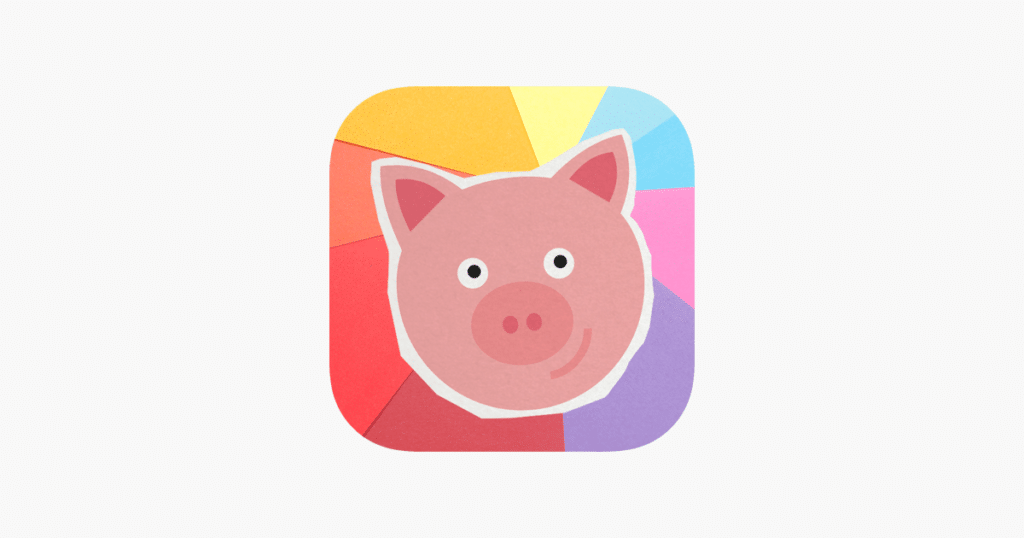
In this game, kids need to collect coins and sort them. They can choose their skill level, which can be played by children ages 5 to 8.
In the first game, they must place the coins in a jar with the accurate sign. In the second game, they must count and choose the correct option. In the third game, they have to decide which is greater out of the two sets of coins given.
They can learn counting skills in this game more interactively and visually.
12. Counting Money Game
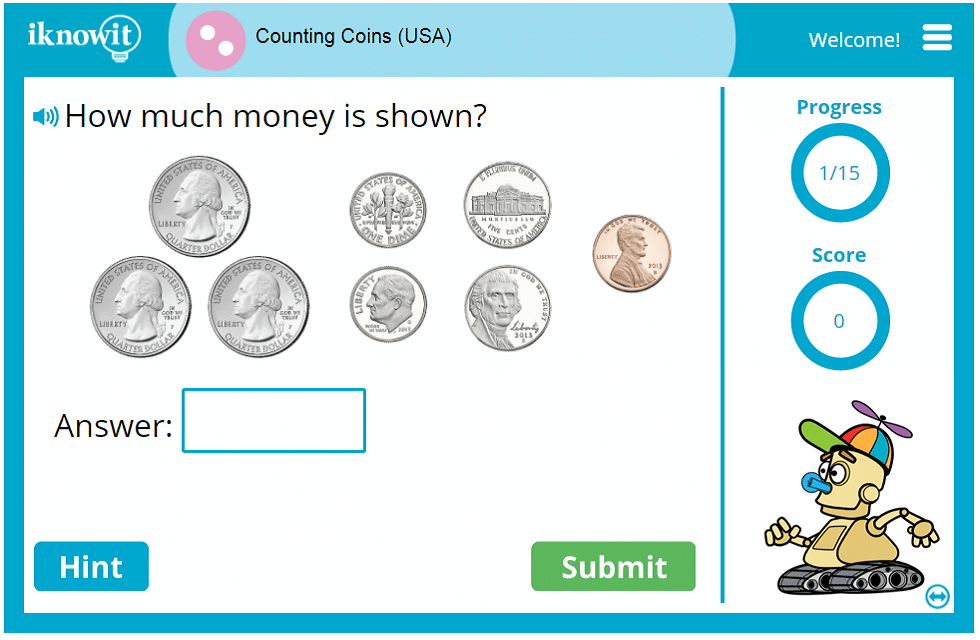
Children can learn the difference between cash notes and coins in this online game. They have to count the money given to them, which combines both.
This game teaches them skills like addition and understanding each coin’s and note’s value. They might be given one value and can choose multiple ways to reach that amount.
For instance, if the money shown is 5 dollars, they can choose a 5-dollar or five 1-dollar note.
13. Counting Coins
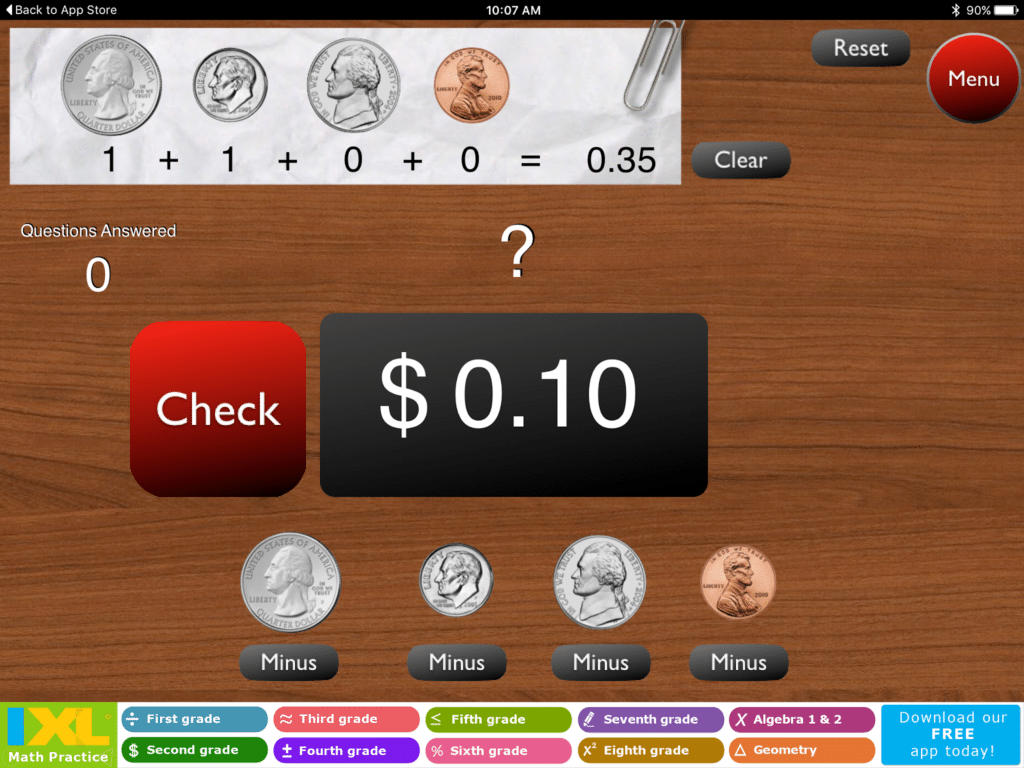
This is very similar to the last game, except this is app-based. They will be shown values on the screen, and they must decide which coins to use and add up to get that value.
They will be shown coins and must give the correct cents. These features can make this game a great introduction to teaching your children about coins and counting.
14. Cash Registry Simulator
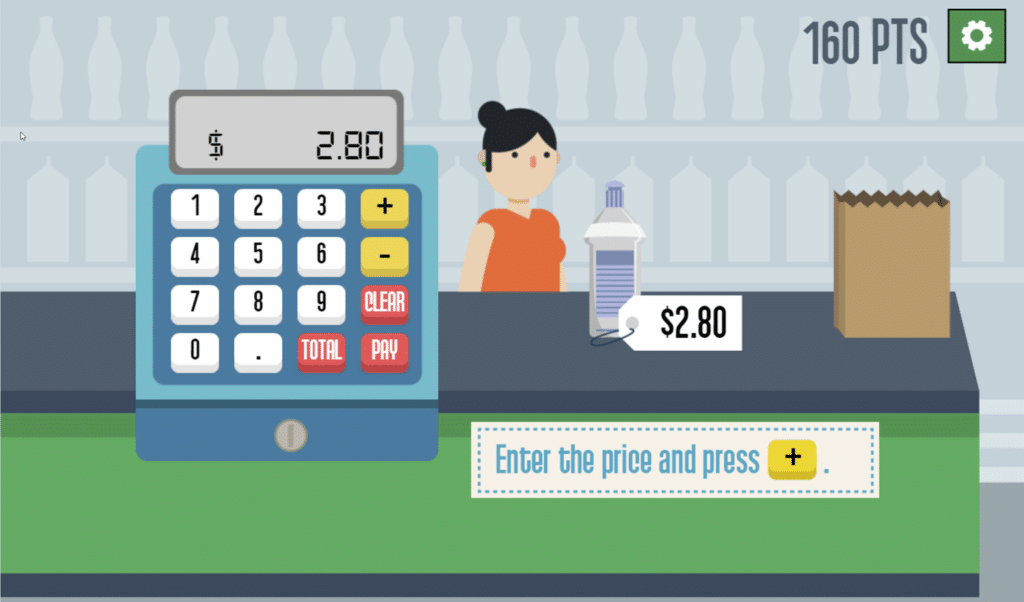
This game can be played by children, where they will be given a list of things they have to buy, and there will be many products with different prices. They have to choose the best one so that they save money.
This is a skill that can easily be used in real life as well. They can track how much they have spent, how much they have saved, and how many things they have bought.
This will help them make better choices financially and help them achieve financial independence early in life.
In Summary
Don’t wait for children to grow older to teach them financial skills. They can start as early as 3 years of age by understanding the value of coins. They can slowly learn more skills like addition, subtraction, and multiplication.
They can move on to playing board games with friends so that they can learn and experience how others spend or save. These financial skills are essential for children in this world.
The earlier they start to understand the value of money and the importance of saving, the better it is for them. Various games can be played to learn about money, including board games, online games, or do-it-yourself activities.
If you tried any of these 14 money games for kids, let us know how it helped them!
Frequently Asked Questions
What are Some Benefits of Playing Money Games?
By playing money games for kids, they can learn skills like counting, subtracting, multiplying, identifying coins and notes, how to save and spend money, where and when to spend it, how they can strategize to save more money, etc. One important learning they will have is to understand the value of money as they will learn how hard they need to work to earn money.
What are Some Money-Related Board Games that Can Be Played?
Monopoly and the Game of Life are two classic games played for generations. Spending on specific things in these games while learning to save money and strategize to increase it would be best. In Buy it Right game, they have to calculate the correct amount. There are games like Cashflow and Act Your Wage, which finance experts developed, and these can teach some higher-level financial concepts.

